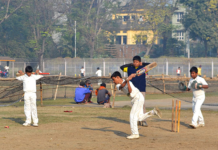Background
In April 2019, the Bombay High Court dealt with a PIL filed by advocate Gurdeep Singh Sachar impugning the legality of ‘Online Fantasy Sports Gaming’ offered by Dream 11 Fantasy Pvt. Ltd. under the Public Gambling Act, 1867 (“the Act”), while also alleging evasion of Goods & Service Tax (“GST”) payable by Dream 11 in accordance with the CGST Act, 2017 and CGST Rules, 2018. This order was briefly discussed in a ‘Weekly Highlights’ update on our page, available here, and the order of the Bombay HC can be found here.
The petitioner’s contention was that fantasy games lure people to spend their hard-earned money for quick earning by taking ill-advised chances, which eventually lead to huge losses for such people. This is the sort of socio-economic plea that many public-spirited advocates have taken recently in litigation against online gaming platforms and fantasy gaming providers. The substantive legal argument put forth by the petitioner was that a fantasy game of this nature is merely a game of chance and totally dependent upon the luck of a player on any particular day. Accordingly, he argued that the activities provided on Dream 11’s platform are ‘gambling’ or ‘betting’ and liable to attract the penal provisions of the Act.
The second primary contention arose from the fact that Dream 11’s tax invoice to its players shows that tax is being charged only on the amount received in lieu of platform fee (around 20%), and not on the entire amount put at stake by a player. The balance amount (which is around 80%) is pooled into an escrow account, and it is this contribution which is ultimately distributed amongst players as ‘prize money’ upon the conclusion of a game. According to the petitioner, GST must be paid on this balance amount as well, irrespective of the fact that it is not retained by Dream 11 as their activities are in the nature of ‘gambling’ or ‘betting’ (Rule 31A (3) of the CGST Rules, 2018 was referred to in this regard).
On behalf of the respondents, the judgment passed by the Punjab & Haryana High Court in Shri Varun Gumber v. UT of Chandigarh & Ors.[i] was primarily relied upon. Herein, the court was tasked with classifying Dream 11’s fantasy sport activities as either a game of chance or a game of skill. As I discussed in a previous post, the court was of the view that a participant in ‘Dream 11’ competitions has to thoroughly assess players, evaluate their worth on an objective basis, try to factor in the players’ anticipated statistics (for example, for a batsman in cricket, his batter averages, total runs, and so on), etc. Clearly then, success in Dream 11 would arise out of the user’s exercise of superior knowledge, judgment and attention, i.e. success in the game would be determined predominantly by skill. Thus, the Punjab & Haryana HC held that the penal provisions of the Act would not apply to Dream 11 and that they would be protected under Article 19(1)(g) of the Constitution of India. Notably, a SLP against this judgment was dismissed by the Supreme Court (vide its order dated 15 September 2017). Furthermore, the judgment of Punjab & Haryana HC was premised heavily on the Apex Court’s decision in K.R. Lakshmanan v. State of Tamil Nadu[ii] where a 3-judge bench had held the ‘horse racing’ is not gambling as it is a game of skill and not chance.
Bombay HCs Order
Based on the aforementioned arguments, the Bombay HC categorically stated that there was no reason to take a different view than the one taken by the Punjab & Haryana HC, especially when that judgment was well-reasoned and aligned with the views taken by the Supreme Court vis-à-vis what constitutes a game of skill. The petitioner’s attempt to question the rationale of these settled judgments was thus dismissed by the Bombay HC. The court also added that the petitioner had lost sight of the fact that results in Dream 11’s fantasy competitions are not dependent on a particular team winning or losing a real-world game. Hence, Dream 11’s activities would not constitute ‘gambling’ or ‘betting’ so as to attract the penal provisions of the Act.
The second contention (pertaining to GST) was also directly based on the court’s decision with regards to the first issue. A reading of Section 7(2) of the CGST Act read with Schedule III would show that “actionable claims, other than lottery, betting and gambling” are not to be treated as ‘supply’ of goods or services and are thus not taxable under the CGST Act. Since Dream 11’s activities do not amount to gambling or betting, the actionable claim (which are the amounts pooled in the escrow account discussed above) would clearly be exempt from levy of any GST. The Bombay HC thus dismissed the PIL and stuck to the Punjab & Haryana HC’s decision in the Varun Gumber case.
Update from the Supreme Court
Three Special Leave Petitions (“SLPs”) were filed in the Supreme Court challenging the order of the Bombay HC, with one of the petitions even filed by Varun Gumber.[iii] The petition filed by Gumber however was swiftly dismissed by the Supreme Court (vide its order dated 4 October 2019). The remaining two appeals and connected intervention applications were also heard and dismissed by a division bench of the Supreme Court comprising of Justices Rohinton Nariman and S. Ravindra Bhat (on 13 December 2019), as it found no reason to admit these matters and interfere with the order of the Bombay HC. It has been reported that Justice Nariman orally observed that there can be no doubt that fantasy sport is a game of skill insofar as the person competing must apply his mind and judgment on choosing one cricketer over the other.[iv] The bench however did allow the Union of India to approach the Bombay HC and file a review petition to get its averments on Dream 11’s alleged GST evasion to the tune of Rs. 2173 crores heard anew.[v]
By doing so, the Supreme Court seems to have removed any lingering ambiguity on the legal status of fantasy sports in India and thus paved the way for the likes of Dream 11 to continue to thrive in an ever-growing market.
End Notes:
[i] CWP No 7559/2017, decision dated 18.04.2017.
[ii] AIR 1996 SC 1153.
[iii] ‘One SLP against Dream 11’s Bombay HC order dismissed, 2 more pending in SC’, (Glaws, 5 December 2019) <https://glaws.in/2019/12/05/one-slp-against-dream11s-bombay-hc-order-dismissed-2-more-pending/>
[iv] ‘SC dismisses all GST evasion and gambling appeals filed against Dream 11, Centre can approach HC again’, (Glaws, 13 December 2019) <https://glaws.in/2019/12/13/sc-dismisses-all-gst-evasion-and-gambling-appeals-filed-against-dream11-centre-can-approach-hc-again/>
[v] Ibid.













Comments are closed.